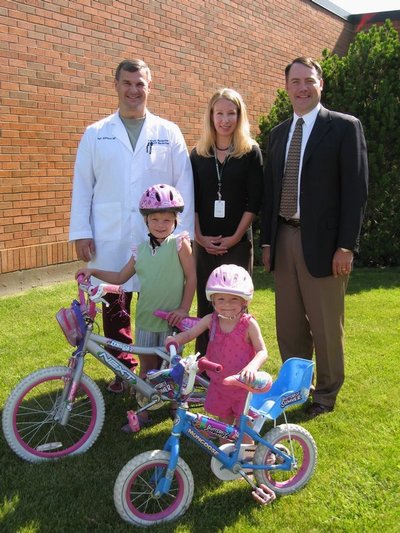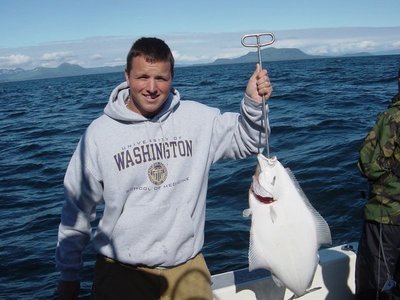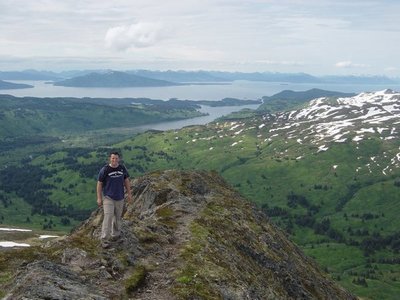September 27, 2007
Students broaden medical horizons in rural communities
“How did you spend your summer vacation?” will be among the frequently-asked questions overheard on campus in the coming weeks. Typical responses to that question might include hanging out at the beach and/or working on a tan. But if you talk with a select group of second-year medical students who took part in the Rural/Underserved Opportunities Program (R/UOP), their responses might surprise — and impress — you.
Shoreline’s Derek Sylte, 26, worked at the North Pacific Medical Center in Kodiak, Alaska. As part of a community medicine project, he delved into a medical condition known as fish handler’s disease, a bacterial infection that occurs when workers cut themselves either with knives or fish bones.
Elsewhere, Karna Sunsted, 34, spent her R/UOP at the Sidney Health Center in Sidney, Mont., which also happens to be her birthplace. While there, she launched a bike helmet awareness program that was embraced by the entire community. Local businesses, including McDonald’s and Valley View IGA (a grocery store), helped promote Sunsted’s project, which included a contest for kids to win one of 75 helmets for bicycling, rollerblading and skateboarding. Other R/UOP projects completed this summer include a pain management program aimed at elderly patients with arthritis in Port Angeles, Wash., and a tobacco cessation project for pregnant women in Dillingham, Alaska.
R/UOP is a four-week, elective immersion experience for students between the first and second years of medical school. Students participating in R/UOP work side-by-side with physicians — many of whom are volunteers — in rural or urban underserved communities throughout Washington, Wyoming, Alaska, Montana, and Idaho. Kodiak’s Dr. Kevin Creelman, who has worked with R/UOP for more than a dozen years, not only worked with Sylte, but also put him up for the four-week stint in his home.
R/UOP sessions wrapped up August 30, with more than 110 students taking part, said Teaching Associate Corinne Corrigan in the UW Department of Family Medicine (which administers the program). Ninety-three students conducted some type of community project and will share an overview November 8 at a poster session in the South Campus Center.
How do students embark on these projects, when they are often sent into unfamiliar communities? Corrigan said students complete a demographic analysis prior to arriving in R/UOP locations and on arrival, complete a community “Windshielf Survey” answering questions including: What do the houses look like, what social services exist and what type of open space and parks are available?
Answers to those questions may be eye-opening, but Corrigan said the “first-time” experiences that students undergo are perhaps even more life-changing. It might be the first time they see a baby delivered, for example, or the first time they experience giving bad news to a family after a death. What’s more, community projects such as those outlined above “start a ripple effect in the community” for improved public health, she added.
Sylte said he was “pleasantly surprised” at the openness of the community toward his fish handler’s awareness project. “People liked to talk about it, and it actually was something that was important to them,” he said.
Both students said they decided to participate in R/UOP because of the chance to experience primary care in a rural setting. Sylte lived with a preceptor physician and his family while in Kodiak. He also went running with a local cross country team and was invited to several barbecues and days at the beach. Days at the beach? “They don’t have very good weather up there except for the summer,” said Sylte, who added that the summer beach time was, indeed, “really nice.”
UW’s R/UOP was recently featured on 94.9 KUOW Puget Sound Public Radio and on National Public Radio’s “All Things Considered.” Listen to the KUOW broadcast at: http://www.kuow.org/defaultProgram.asp?ID=13424.





